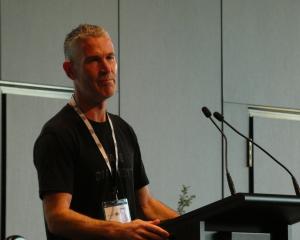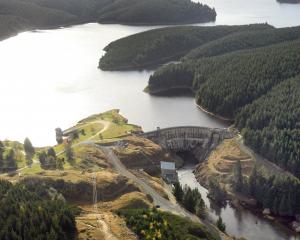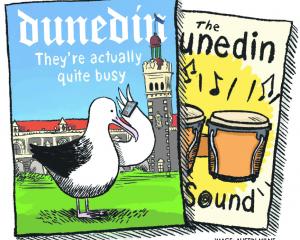
For its six months trading to January, Kathmandu ended the period with record low half-year net debt and yesterday announced an acquisition of up to $US75 million of US-based Oboz Footwear, which includes an earn-out payment of up to $US15 million.
The acquisition will be funded by a fully underwritten $40 million institutional share placement, with an additional up to $10 million raised from a non-underwritten share purchase plan for shareholders, with the balance funded from a new acquisition debt facility, and expansion of existing debt facilities.
In a market presentation on the acquisition, Kathmandu said the Oboz purchase was consistent with its international growth strategy, to pursue buying a lower-risk wholesale model.
It advanced Kathmandu's transformation from an Australasian retailer to a global outdoor apparel and equipment brand, and combined with Oboz, would increase Kathmandu's international offer, particularly for underdeveloped markets in Europe and Asia.
The Oboz purchase would increase Kathmandu's wholesale business and reduce its reliance on Australasia, the company said.
Kathmandu shares, up more than 24% on a year ago at $2.40, were placed on a trading halt yesterday before the half-year and acquisition announcements.
Forsyth Barr broker Suzanne Kinnaird said Kathmandu was the exclusive retailer for Oboz in Australasia, so was familiar with products and sales rates.
She said while the Oboz acquisition fitted Kathmandu's offshore expansion plans ''in a capital light manner'', she also said ''on the surface the price paid seems very lofty''.
''The underlying Kathmandu business is in good shape.
''However, focus now turns to its international plans and getting a greater insight into the Oboz acquisition to get more understanding on Kathmandu's priorities and expectations, particularly given the price paid,'' Mrs Kinnaird said.
Craigs Investment Partners broker Peter McIntyre also said the purchase ''wouldn't seem to be cheap'', but noted the deal was being financed mainly though equity raising with $10 million added to debt, albeit the earn-out could potentially cost a further up to $15 million.
Oboz provided growth alternatives with a compound annual growth rate of 40% and it provided Kathmandu with northern hemisphere market opportunities, with a less seasonal product, he said.
''It does seem to be a reasonable bolt-on acquisition and makes sense for Kathmandu,'' Mr McIntyre said.
Mrs Kinnaird described the half-year results as ''strong'', with same-store sales up 7% and strong gross margin expansion.
However, she said it was still ''early days'' into second-half trading and June-July winter sales were the ''key driver'' for full-year profitability.
Kathmandu saw Australian sales grow by 3.7% and online sales account for 8% of all sales, while in New Zealand sales were down 6.4%, having been impacted by lower levels of clearance stock.
Sales for the period were up 4.3% to $204.8 million, earnings before interest and tax (ebit) rose 21.6% to $18 million and after-tax profit was up 23% to $12.3 million.
Total stock inventory levels declined from 13.8% last year to 12.7%, or $84.2 million.
Kathmandu chief executive Xavier Simonet said the Oboz acquisition was ''significant'' for the company and would accelerate international growth, diversifying product mix, geography and also channels to market.
He said while the clearance inventory levels impacted on New Zealand sales, there were benefits to both gross margins and inventory handling costs.
He said Kathmandu's financial position had continued to strengthen during the half, ending with a ''healthy'' inventory and record low half-year net debt, which declined from $48.9 million a year ago to $17 million.













